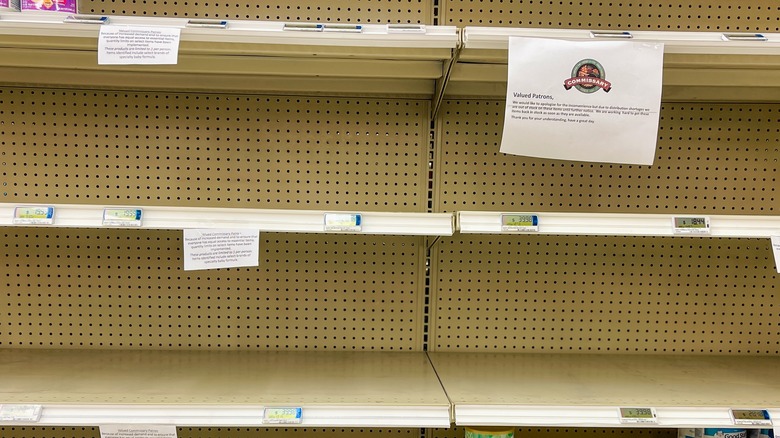The Latest Recall Is Coming For Your Turkey Sandwiches
Just when you thought you were safe, yet another recall has been declared. This time, there's no place to hide, unless you're a vegetarian. After all, pretty much everyone eats turkey sandwiches... Or they used to, anyway. Crowd-pleasing, customizable, generally healthy — what's not to like? But this time, there's a problem, and it's potentially life-threatening. These mouthfuls of turkey and cheese are being sold without an important allergy warning.
According to the FDA, the sandwiches involved are of the pre-fab sort. Produced by GH Foods, they are turkey and havarti sandwiches on a type of whole-grain bread that includes sesame, which reportedly was not declared on the labeling. They come in 8.55-ounce clamshells and were sold in stores in California, Kansas, Nebraska, Texas, and Louisiana. The affected lots have sell-by dates up to 4/29 and are printed with the following code: UPC 8 2676615584 2.
While sesame allergies are no joke and can cause very serious reactions, there's some good news: First, the sandwiches do not pose a risk to anyone without allergies, and second, there have not been any reports of anyone (allergic or not) getting sick from the sandwiches.
Allergens lead the charge
This is the second time recently that GH Foods has had to recall a pre-packaged food item for a potential allergen. Trader Joe's Lemon chicken and arugula salads were recalled in March after it was discovered that the packages had gone out without adequate labeling. The top labels of the product noted the presence of wheat in the salad, but the bottom labels did not. Given the prevalence of wheat allergies, this quickly became a concern and the product was duly recalled.
The FDA and the USDA are the government agencies responsible for issuing recalls, and both monitor products for concerns. In the last couple years, recalls have been increasing significantly for items that fall under the FDA's jurisdiction. Food Safety News notes that while the number of recalls has remained relatively stable, there was a 700% increase from 2021-2022 in terms of individual food "units" affected by FDA recalls, which means larger quantities of food are being recalled.
Recalling products for bacterial contamination and the presence of extraneous matter has long been a familiar occurrence: Evidenced by the tragic 2022 infant formula recall, those recalls frequently garner the most attention and are the most dramatic in their effects. However, undeclared allergens have been the most common reason for FDA recalls over the past five years, comprising over 40% of them. The leading category? Prepared foods. It's getting harder and harder to get a safe lunch, let alone a free one.

